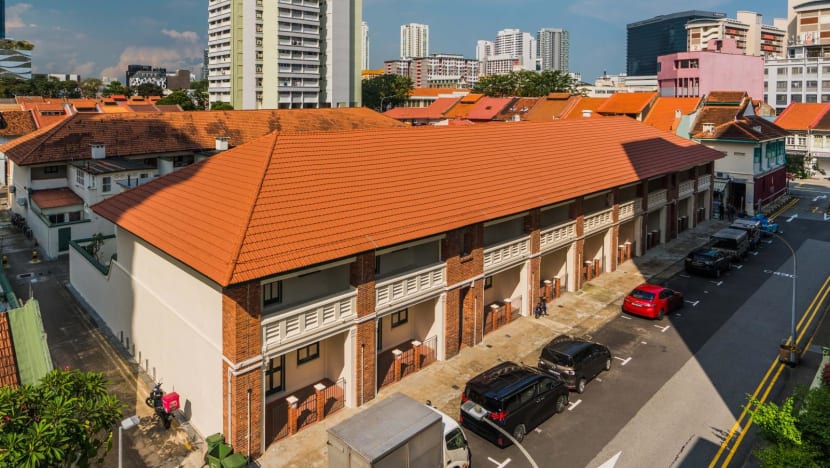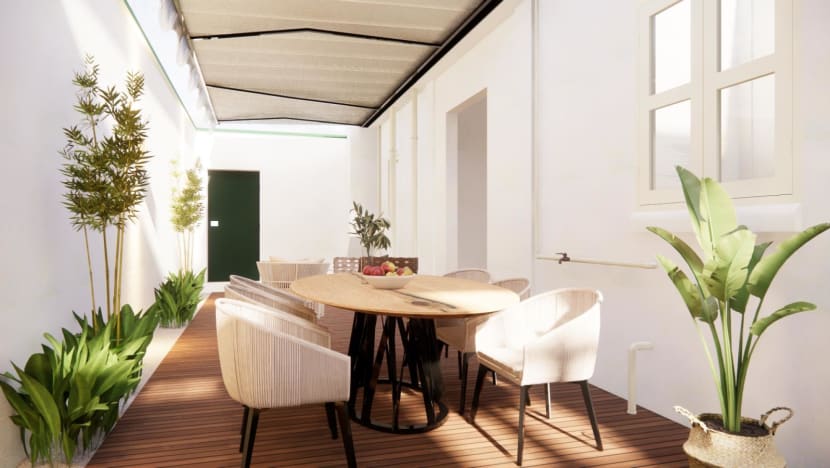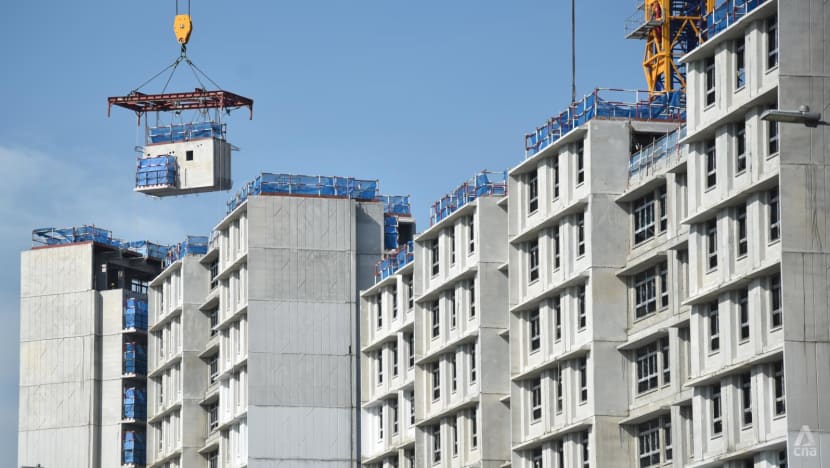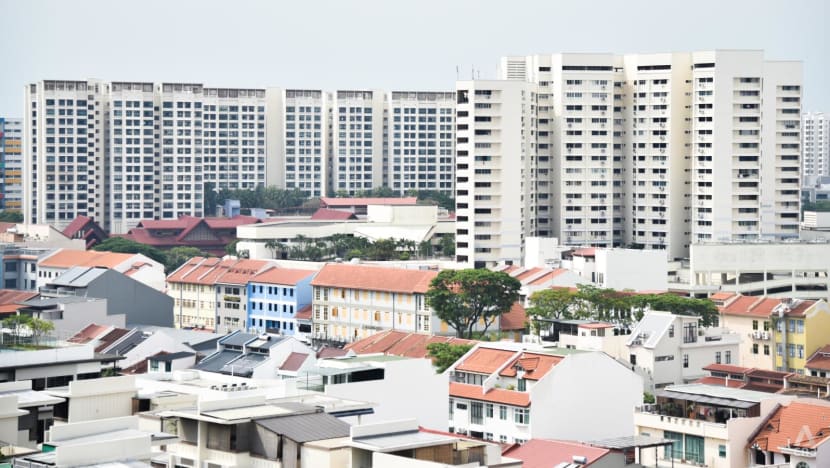More state-owned buildings to be converted into co-living spaces to meet housing demand, trends in Singapore
The increasing popularity of co-living spaces follows a growing trend of singles renting their first homes instead of owning them, while taking into consideration factors such as affordability and location.

The awarding of a tender at a heritage shophouse along Hindoo Road is the first of multiple expected to be launched over the next few months. (Photo: Singapore Land Authority)
SINGAPORE: More state-owned buildings in Singapore will be converted to co-living spaces, to meet the rising demand for such housing here.
The awarding of a tender at a heritage shophouse along Hindoo Road is the first of multiple expected to be launched over the next few months, the Singapore Land Authority (SLA) said on Wednesday (Aug 16).
This is in response to changing lifestyle trends and consumer demands in the housing sector here, it said.
On the same day, a state-owned two-storey hostel at 26 Evans Road, near the Botanic Gardens, was also put up for tender. Similar to the Hindoo Road property, the tender offers an upfront tenure of five years, and can later be renewed for four more years.
The SLA said it will take into consideration the price, quality and green initiatives proposed.
THE FIRST OF MANY MORE
The tender for the new co-living facility along Hindoo Road, located near Little India, was awarded to construction company Eco Energy.
Tenants will get their own rooms, along with a communal space to unwind and a shared kitchen.

Eco Energy’s general manager David Tan told CNA: “We want to encourage (and) give them (tenants) support to do some farming, because we see that there's an in-built courtyard with access to the sky and daylight.
“Given the profile of our clients, we believe that maybe growing some garden herbs and cooking classes will be very interesting.”
The firm is targeting academic staff and well-to-do students of nearby education institutions, added Mr Tan. It will cost at least S$3,500 a month to rent one of the roughly 54 units that will be available.
RENTING INSTEAD OF OWNING HOMES
The increasing popularity of co-living spaces follows a growing trend of singles renting their first homes instead of owning them.
Professor Sing Tien Foo, Provost's Chair at the Department of Real Estate at the National University of Singapore Business School, said the co-living concept is still quite new in Singapore.

It may take a while before its impact on the local property landscape can be felt, he added.
“I think there's still room for new players and also existing players to expand the supply of these co-living housing options,” he said.
He expects short to medium-term demand to continue strongly and attract people who seek to live independently, yet have a communal lifestyle.
“This will appeal particularly to visitors and also the young people, young residents or young couples who actually want to have independent living and while waiting for their permanent housing option,” said Prof Sing.
AFFORDABILITY COMPARED TO PRIVATE SECTOR
One draw of co-living spaces is the affordability compared to renting from private landlords, Mr Lee Sze Teck, senior director of data analytics at Huttons Group, told CNA’s Singapore Tonight on Wednesday.
“Moreover, when you look at a co-living space, they offer you things like housekeeping on a weekly basis,” he said, of the added amenities that such facilities provide.
Mr Lee also highlighted the communal element and activities in co-living spaces, which allow tenants “to get to know more people”.
“So for this type of experience and the value we get, I think the price that they are charging is actually pretty competitive versus the private market side,” he said.
Mr Lee said part of the demand for co-living spaces is its flexibility for temporary stays, which appeals to people who are affected by construction delays.

“They cannot put down an exact date as to when their new homes will be completed, and going into co-living gives them that flexibility to actually extend it by a few months, rather than going into a long-term contract of two years,” he said.
Another source of demand is more permanent, from locals who are interested in experiencing what it is like living in such an environment. This segment may still buy their own houses eventually, noted Mr Lee.
Foreigners working in Singapore, especially those affected by increasing rental prices in the private market, are also likely to look towards co-living spaces as a viable option, he added.
UNIQUELY SINGAPORE HOUSING CHALLENGES
Ms Petrina Yuen, a postgraduate student who lives in a co-living space, emphasised that such alternative housing options are necessary to address Singapore's unique housing challenges.

This includes policies where people below 35 years old are not eligible to purchase Build-to-Order (BTO) and resale flats, she told CNA’s Singapore Tonight on Wednesday.
“I'm not a student in Singapore, but I think it's really important to address, especially, people in my age group who are maybe at their first jobs or recently graduated. The options in the market are really quite limited, even renting a HDB now is really quite an expensive endeavour,” said Ms Yuen.
She said that while there are a lot of people who decide to continue living with their parents, that may not be an option for a segment who may have various reasons preventing them from doing so.
Location is also another huge factor for people to consider co-living spaces as “a lot of the mature estates have been priced out”, noted Ms Yuen.
A report by real estate consultancy JLL recently showed that many co-living properties are found in the central part of Singapore, which is well connected and offers easy access to amenities, transport links and workplaces.
In particular, River Valley, Geylang and Little India are popular due to their proximity to the central business district, and they also feature vibrant local culture, food and entertainment scenes.

















